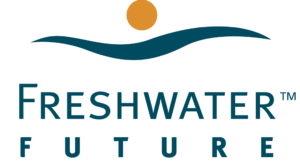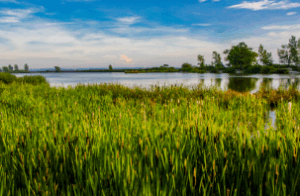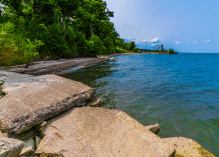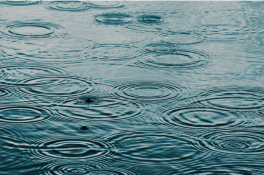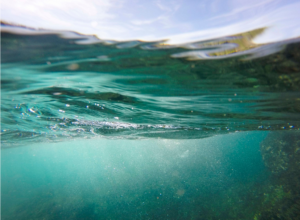Welcome New Staff Member, Kwamé Hampton
Kwamé Hampton recently joined the Freshwater Future staff to work with our community-based partners on water issues such as flooding and lead in drinking water. A resident of Detroit, Kwamé will be engaging organizations in collecting real-time data through our mobile stormwater app to document where flooding occurs. With the data collected, local organizations can then advocate for stormwater management and green infrastructure to reduce flooding with their local decision makers. If you are interested in learning more about the stormwater app, contact Kwamé at kwame@freshwaterfuture.org.
Indigenous Knowledge Added to Climate Atlas of Canada
Indigenous expertise is being used to complement climate change science to aid in understanding climate change impacts. An Indigenous Knowledges component was added to the Climate Atlas of Canada, a tool combining climate science, mapping and storytelling to educate about climate change in Canada. In an interview with CBC Hetxw’ms Gyetxw, a Media Specialist for Climate Atlas of Canada says he hopes the new tool will help Canadians see that Indigenous knowledge is not only about the past. He says “It encompasses the weather, it encompasses what things are going to look like in the future. We take into account the biology, the ecology, everything about our lands.” The new Indigenous Knowledges component provides information about the impacts of climate change on 634 First Nations communities, 53 Inuit communities and climate projects across the Métis homeland.
Risk Assessment of the Line 5 Straits Pipeline
The 67-year old Enbridge Line 5 pipeline carries light crude oil and natural gas liquids from Superior, Wisconsin to Sarnia, Ontario, passing through the Straits of Mackinac Lakes that connects Lakes Michigan and Huron. Independent assessments of the “most credible major accident” and the “worst-case spill or release of oil” have been performed and the results are troubling. A worst-case scenario for a spill in the Straits of Mackinac could contaminate public water supply sources for the cities of St. Ignace and Mackinac Island and another 306 private drinking water wells in 4 counties and would likely take many months to 2 years to clean up. Economic damages including loss of natural resources and declining tourism total an estimated $1.37 billion USD before accounting for agricultural water use, human health impacts or knock-on effects to damaged habitats. Other economic impacts from a spill include governmental costs for response and oversight, which could range from $123 million to $535 million and ecological restoration could run from $165 million to $1.949 billion. A Line 5 spill in the Straits of Mackinac would be a disaster unlike any the Great Lakes have seen and it is clear from this assessment that the potential costs of such a disaster are enormous.
Invasive Sea Lampreys Benefit from Border Closures
Sea Lampreys are an invasive species to the Great Lakes. They feed on and threaten up to 100 million pounds of fish per year. Removing them has been a bi-national effort but border closures due to the pandemic delayed treatments to kill invasive sea lampreys in the Great Lakes and their tributaries. Crews treated as many locations as they could under the restrictions, but the treatment of 67 tributaries and 6 standing bodies of water had to be deferred or skipped in 2020. The next few years may show an increase in Lamprey numbers and attacks before we see the impacts of resumed bi-national cooperation.
